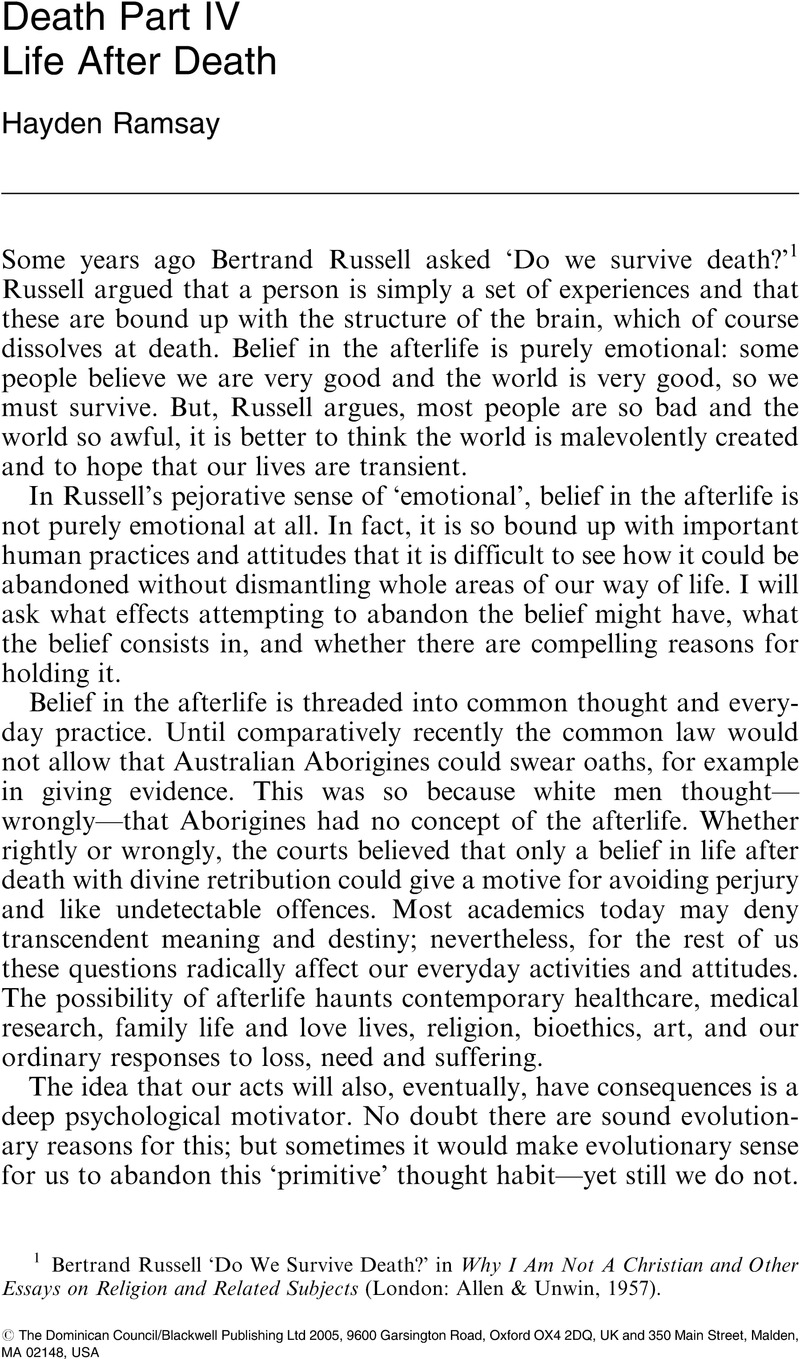No CrossRef data available.
Published online by Cambridge University Press: 01 January 2024

1 Russell, Bertrand ‘Do We Survive Death?’ in Why I Am Not A Christian and Other Essays on Religion and Related Subjects(London: Allen & Unwin, 1957)Google Scholar.
2 Rosenbaum, Stephen ‘How to be dead and not care: a defence of Epicurus’, American Philosophical Quarterly 23, 1986, pp. 217–225Google Scholar.
3 Sorabji, Richard ‘Fear of Death and Endless Recurrence’ in Time, Creation & the continuum: theories in antiquity and the early middle ages(Ithaca NY: Cornell UP, 1983)Google Scholar.
4 Dastur, Francoise Death: an essay on finitude, trans. Llewelyn, John (London: Athlone, 1996), p. 37Google Scholar.
5 Thomas Aquinas Summa Theologiae 1, 76, 1.
6 O’Hear, Anthony Philosophy in the New Century(London: Continuum, 2001), p. 153Google Scholar.
7 See, for example, Zimmermann, Dean ‘Materialism and Survival’ in Philosophy of Religion: the big questions, Stump, E. and Murray, M., eds (Oxford: Blackwell, 1999), pp. 379–86Google Scholar.
8 For interesting critique of both Swinburne's dualism and recent Thomistic work on the soul, see Hasker, William The Emergent Self(Ithaca, NY: Cornell UP, 1999), Ch. 6.Google Scholar
9 Caroline Walker Bynum, quoted in Daniel Callahan ‘Visions of Eternity’, First Things, May 2003, pp. 28–35.
10 Geach, Peter ‘Immortality’ in God and the Soul(London: Routledge and Kegan Paul, 1969)Google Scholar thinks that only the Judaeo‐Christian idea of resurrection makes sense of survival of death.
11 See Tugwell, Simon Human Immortality and the Redemption of Death(Springfield, Templegate, 1990), p. 122.Google Scholar
12 James Ross ‘Together With the Body I Love’ in Person, Soul and Immortality, Proceedings of American Catholic Philosophical Association, vol. 75, 2001, p. 4.
13 Aquinas Supplement to Summa 79, 1, ad 3.
14 See Thomas Aquinas Summa Contra Gentiles IV, 81, 1.
15 Thomas Aquinas Commentary on the Sentences IV, 44, 1, 3.
16 See Geach, Peter ‘Immortality’ in God and the Soul(London: Routledge and Kegan Paul, 1969)Google Scholar.
17 Matt. 16: 25; Mark 8: 35; Luke 9: 24.